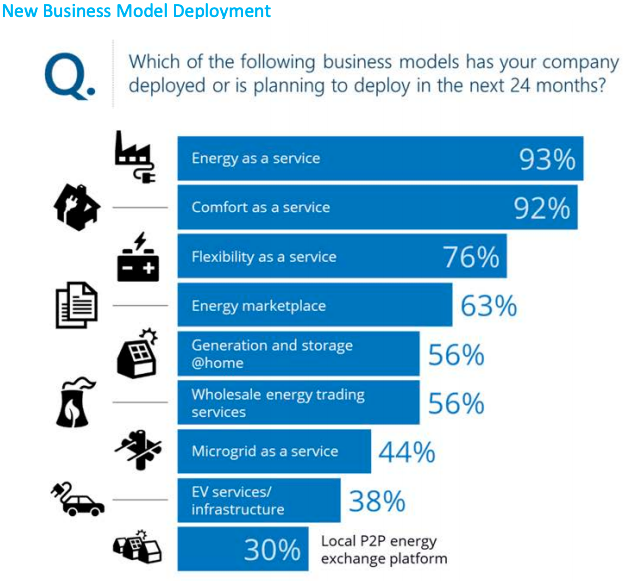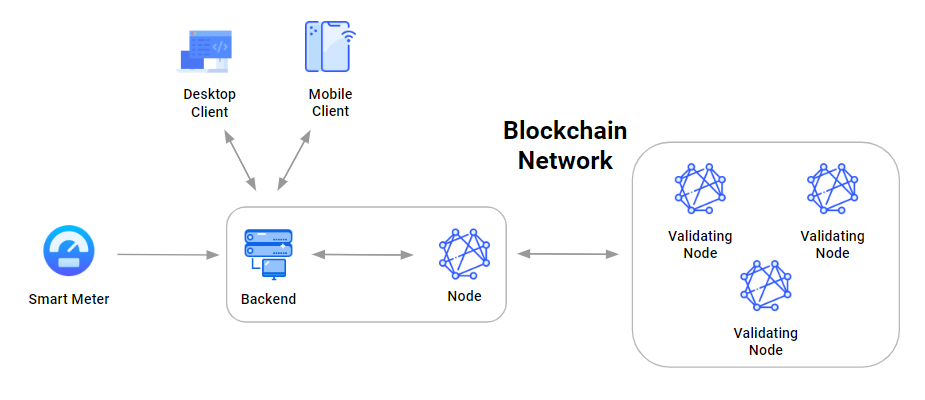Energy providers
Who are we ?

“My name is Esther and I am thankful that I got the chance to participate in this SmartCityZen project. I have obtained plenty of knowledge about the energy sector in general and have learned the Russian culture through interaction with Russian students. Further on, the intensive discussion with specialists from public utilities and professors from different universities elevated my perspective in the energy sector. In light of the evolving new technologies which give rise tremendous impact on our daily life both on how do we consume energy and how do we as a consumer can engage in energy production. The energy sector is in the era of change, it’s unavoidable and at the pace that we cannot imagine. The first project week in Basel and Ligerz was fruitful and I look forward to the second project week which will be conducted online in July due to COVID.”

“I am Laetitia Sudan and I am currently studying at Haute école de gestion Arc in Neuchâtel. During my previous year I had to choose my option for the last year. Smart Cityzens convinced me due to the fact that it is an experience in practice. In addition to that Smart Cityzens offers to all participants the chance to work with students from foreign country. Our topic was related to Energy providers, which I found tough because I am studying Business Administration and not Energy in concrete terms. Our task involves in improving the business model from this kind of companies. Indeed, we can propose what we want owing to new technologies. However, I am curious to discover how will be the world of tomorrow and I am proud to “work” a bit on it.”

“My name is Dinara Gilmanova. This year I am graduating Samara State University of economics where I’ve been studying the world economy for 4 years. I am lucky to be a part of the Smart CityZens project and our international team. Although I had some experience in project development before, the topic of «Smart Energy» was definitely new for me. After the first intensive week in Switzerland I’ve realized that the energy sector is in the era of global transformation. With the development of smart cities and digitalization of services it is required to reorganize the energy business, develop new innovative opportunities and implement cutting-edge strategies in order to create new business models for energy providers. So, these are the aspects that our team is working on. Anyway, we can not only see how smart technologies are changing the world for the better, but also make our contribution to the global transformation.”

« My name is Denis Liubitsky and I am a computer security specialist. I like everything about cutting-edge technologies, so I didn’t hesitate a second when I knew I could be a part of the Smart CityZens project. The main component in smart cities is the energy that feeds a lot of smart devices in smart homes. In the future, under the influence of digitalization, energy will take on a completely different form for consumers. Together with my team, I had the chance to rethink the business models of energy providers in this market transformation. This is very useful experience for me and I look forward to seeing the world of the future that we are working on. »
Our first week in Switzerland
Firstly, we met each other the first time in Switzerland in February 2020. Moreover, we met our teacher Alexander, who will be following us during all the project. He explained us the needs from the energy providers from Omsk. In Siberia, companies related to this field are totally different from Switzerland owing to the way of thinking and culture mostly.
In Siberia particularly energy providers lives from natural gas and oil. Instead of Russia, in Switzerland we mostly live with renewable energy. Omsk got the chance to take advantage of 300 sunny days, what an opportunity for solar panels ? In comparison to Switzerland, they did not introduce smart meters. It could be very useful for energy providers against “cheating”.
Our energy consumption is different as we explained it before. In Switzerland to satisfy our needs we use the exportation from foreign countries, 30% come from foreign countries. Moreover, we can improve our production of solar power and wind turbine. Indeed, Switzerland has much to learn from other European countries.
As a matter of fact, the battlefield of providing energy will continue to have radical change in the upcoming years. Energy providers are facing challenges like climate change and the reduction of polluted energy already. It’s the start of the battle and we believe that companies will focus more on a holistic solution instead of providing a single solution. Energy providers should be in partnership with other participants in the ecosystem in order to diversify their service. You will find below some examples of new business models.
New Business models at a glance
The energy provider has influence over almost every aspect of the supply chain but the least understanding of the customer. Considering the new regulatory environment providing collaborative innovation and business opportunity, offering bundled services can enable energy provider to prevent newcomers to step in and avoid splitting services off from their traditional services provided. (Mcmahon, 2020). The below picture depicts the business models which will be deployed in the next 24 months in a survey done in 2018 by Capgemini (Bigliani, Segalotto, & Skalidis, 2018). A combination of different business models with Energy as a service and Comfort as a service as the top margin contributors is the most promising way for the energy provider to survive.

The business model “Energy as a service” describes an energy provider is not only required to sell energy but also provide technology, analytics, personalised services and even access to the grid. Likewise, the “Comfort as a Service”, a model focus on providing comfort to residential customers which considers various elements that affect energy consumption and associated costs, and occupants’ behaviors to generate optimal control strategies for the domestic equipment automatically. Both business model concepts proof that energy providers are required to take further steps to accommodate the end client’s needs. Exploiting the potential of the smart meter which addresses the commercial and industrial (C&I) clients and residential customer’s needs. Within the next two years, three-quarters of the market players will move to this model. The decisive way of success is what will be the depth of the services and the capability to take the risk of deploying the appropriate use case.
Prosumer concept
Below two trends have proved the « prosumer concept ». Firstly, apart from saving on energy bills, C&I clients are envisaged to take hold of not only the electricity user role but searching for the best possible offer in the market. Powering by the rise of the Energy marketplace which facilitates the development of energy optimization by combining the client’s energy consumption pattern and saving potential, C&I should be able to reduce their electricity bill enormously.
Secondly, Generation and storage at home are other clear trends due to the significant drop in storage price of energy and the rise of the role of solar PV. Pertinent to the report (International Renewable Energy Agency, 2019), scaling up electricity from solar PV is crucial for decarbonization of the world’s energy system. Follow the wind energy which will be counted for one-third of the major electricity generation source, solar energy would supply up to ten folds by 2050. It’s a huge market for an energy provider in Switzerland who mainly provides the implementation of the solar panels for clients.
The potential of the margin from the innovative business model is currently underestimated especially in organizations from not liberalized countries due to limited competition. As such, defensive acquisitions and active involvement in new disruptive business models, for instance, Local P2P energy exchange platform via blockchain technology could help to adapt to disruptive chain, for instance, wholesale energy trading services on industry-level.
Technological change has facilitated small-scale implementation as well as independent transformation change in cities. As a matter of fact, except lighting, water, and waste management, there are still huge potential or development in water and sanitation investment
Digital transformation elevated the bar of data value with the help of the emergence of urban data platforms which solve the various problem and harnessing value from it. Whereby only limited investment has been made in these areas, they provide huge business opportunities in which energy providers can take advantage of their presence in the territory and the exploitation of existing physical infrastructures.
In opposite is the Microgrid as a service which deemed to be very difficult due to the high specificity of infrastructure from clients (e.g. hospitals, universities, corporate campuses, data centers) and missing standards in the industry.
In the below section, we will depict further insight on the blockchain’s impact on energy provider’s service.
Blockchain is a database in the form of a dispersed register that is distributed among the various players in the electricity retail market connected to a blockchain network. The blockchain properties such as data immutability, transparency, decentralisation and manipulation resistance are highly relevant today for the retail market of electrical energy.

What is the benefit of using blockchain for the company?
Blockchain makes it possible to create a single trusted information space that favourably influences the organization of the payment system.
The consumer pays the electric bills according to the fixed and reliable data recorded in the blockchain. Electricity payments are « splitted » between generating and electricity distribution companies by means of smart contracts, which are digital analogues of a power supply contract. A smart contract also allows the consumer to instantly change the energy tariff. And the power provider cannot change rates without notice, retroactively.
The introduction of blockchain is an urgent requirement dictated by the global transformation of the industry. In December 2019 the Russian energy company «Rossetti» reported about the launch of a pilot project for automatic power accounting: the cities of Yekaterinburg and Kaliningrad became pilot sites. The company’s plans are to completely exclude the manipulation of information in the energy market, including power accounting and payments for electricity. The solution is directly integrated with smart meters as well as with the bank, thanks to which the payment chain from the end-user to the generator of electricity is organized. Data on the electricity consumption of a specific household are transmitted directly from a smart-meter to the blockchain and are displayed in a mobile application. The consumer can monitor electricity consumption in real time. Moreover, the application analyses energy consumption and can, for example, recommend that the user switch to a more advantageous tariff.

In the future, the platform will be able to provide easy access to the energy market for new customers who not only take power from the electricity grid but, at certain times, can provide generated or previously accumulated electricity (prosumers). Also, the demand response technology project is being actively developed: at peak times, when electricity becomes expensive, the system operator can apply to the energy market for a reduction in demand, paying consumers the difference. Another perspective is the work with green certificates of renewable energy consumption, which is now gaining in importance in Europe and is beginning to develop in Russia.
So far, the use of blockchain alone does not generate savings compared to the use of traditional databases. But once the blockchain is universally applied, the savings will be significant. It is formed by transparency of payments between sales and electricity grid companies, rapid detection of unauthorized connections and elimination of non-payment bills.
Students:
Dinara Gilmanova, Esther Höhne, Denis Liubitskii, Laeticia Sudan
Supervising Professor:
Alexander Kabanov
References:
Sadov A.V. (2019). Blockchain technologies on the electricity market. Rosseti Ural.
Rosseti. (2018). Digital transformation of 2030.
Waves Enterprise. (2019). Waves Enterprise’s solution: a new approach to recording electricity consumption Waves Enterprise. https://medium.com/waves-enterprise/waves-enterprises-solution-a-new-approach-to-recording-electricity-consumption-c087fb5ca3c1
Asma Khatoon, Piyush Verma, Jo Southernwood, Beth Massey and Peter Corcoran. (2019). Blockchain in Energy Efficiency: Potential Applications and Benefits.
Merlinda Andoni, Valentin Robu, David Flynn, Simone Abram, Dale Geach, David Jenkins, Peter McCallum, Andrew Peacock. (2019). Blockchain technology in the energy sector: A systematic review of challenges and opportunities. Renewable and Sustainable Energy Reviews. Volume 100. Pages 143-174.
